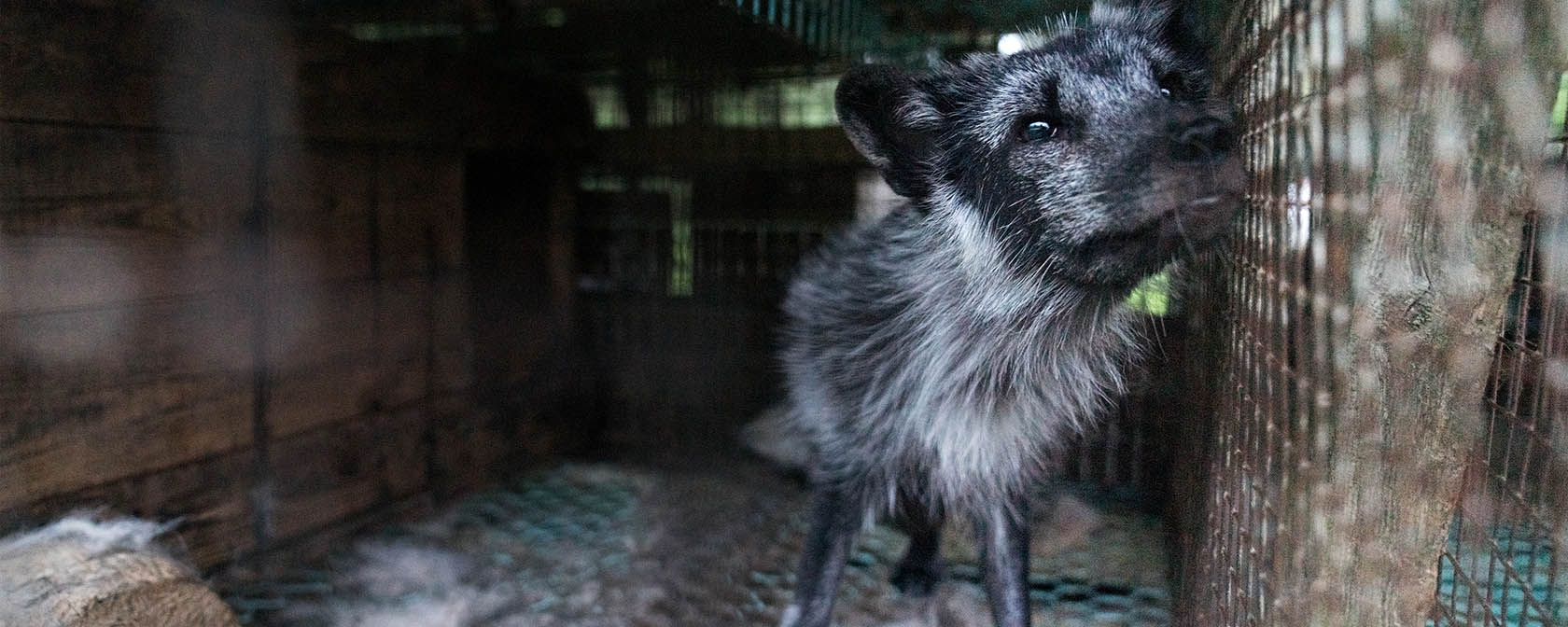By Sara Amundson and Kitty Block
The coronavirus pandemic has prompted the world to acknowledge the pressing need to change our relationship with animals. From the wildlife markets implicated in the origin of the novel coronavirus to the slaughterhouses that have become clusters for its spread, we now know only too well that our uncaring attitudes and indifferent practices toward animals can have grave consequences for human health.
Health experts already agree that wildlife markets need to close wherever they exist because of the role they have played in this and past pandemics. But fur farms, puppy mills and factory farms are known breeding grounds for viruses and drug resistant bacteria too, because of the terrible conditions in which the animals raised are kept. If we are to avoid another pandemic, we need to address the inherent problems of these sites of animal use and abuse with urgency as well.
Today, the Humane Society family of organizations is advancing an 11-point policy plan to reduce animal suffering and help prevent future national and global pandemics. These are our recommendations:
Shut down wild animal markets permanently around the world
At these markets, live and dead wild animals are kept in extremely close proximity. Blood, urine, feces and other bodily fluids from the animals mix, creating the perfect environment for pathogens and disease spread.
End the trade of live wild animals
Whether captive-bred or wild-caught, wild animals bought and sold for the exotic pet trade or other commercial purposes can spread a variety of viral, bacterial, fungal, and parasitic infections that pose serious health risks to humans.
Ban close encounters with wild animals and their use in traveling shows
Animals stressed by transport, confinement, crowding and handling—conditions common in traveling shows—are more likely to shed pathogens that cause disease.
End fur farming and the fur trade
Animals killed for their fur, like raccoon dogs and foxes, have been known to carry the SARS virus and are often sold and killed on-site at live animal markets like the one in Wuhan, China, tied to the COVID-19 outbreak.
End intensive confinement of farm animals
Intensive confinement of farm animals, including the use of cages for hens and gestation crates for mother pigs, has substantial links to the origin and spread of diseases because of the sheer number of animals that are packed together in unsanitary and pathogenic environments.
Shift the global food industry focus to plant-based proteins
Since most zoonotic diseases—diseases that spread from animals to humans—can be traced to farm animals, including chickens, cows, pigs and goats, state and federal governments should fund research to develop more plant-based and cultured meat technologies and global food companies should offer more plant-based options.
End the sale of dogs from puppy mills
The Centers for Disease Control and Prevention has more than once implicated puppy mills, and pet stores that sell them, as sources of disease outbreaks, including recent multistate outbreaks of drug-resistant campylobacter that sickened almost 150 people and sent some of them to the hospital.
End the dog and cat meat trade
The dog and cat meat trade poses a significant risk of rabies transmission throughout countries where these animals are consumed.
Effectively manage street dog populations
Free roaming dogs are the lead vector of rabies transmission to humans. Fear of rabies often causes humans to mistreat street animals, increasing conflict and bite incidence which can in turn lead to rabies transmission and death.
End cockfighting
The World Health Organization has said cockfighting can be linked to the spread of deadly viruses like the bird flu.
Fund alternatives to animal testing to speed up treatment and vaccines
We are calling for increased investment and a focus on humane, non-animal methods, such as human lung tissue cultures, cell-based models and organ-on-a-chip technologies to help us better understand, prevent and treat diseases, including COVID-19. These methods are quicker, less expensive and more relevant than conventional animal testing.
These are approaches we have long advocated, and we have successfully championed them in many parts of the United States and around the world. Now, even as we continue and expand our work globally to build a stronger animal protection movement, end the cruelest practices and care for animals in crisis, we’ll be pushing policymakers and business leaders to implement our policy recommendations to avoid another pandemic. Working together, we can make our world a safer, and healthier, place for both people and animals.
Kitty Block is President and CEO of the Humane Society of the United States




